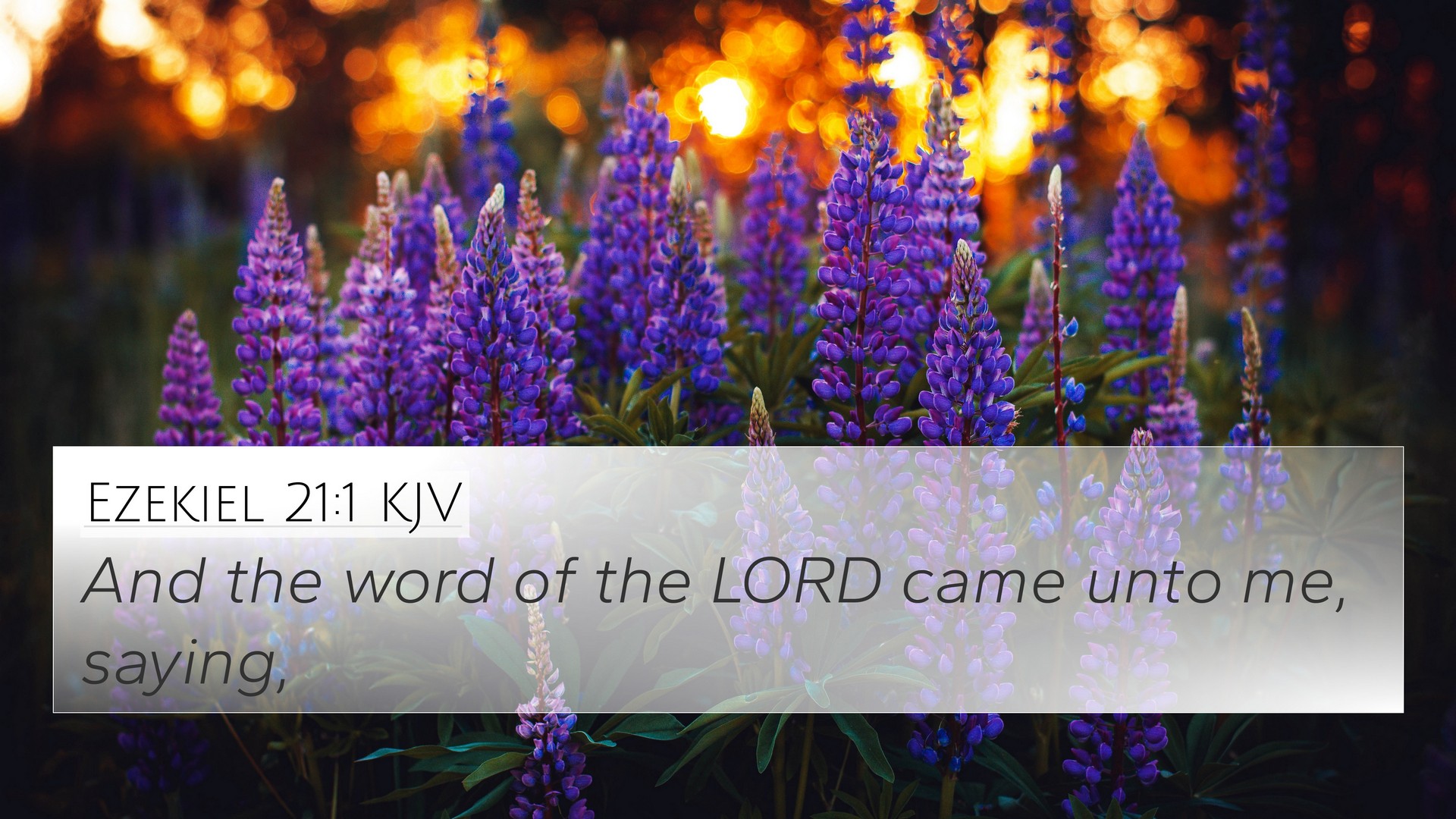Ezekiel 21:1 - Summary and Commentary
This comprehensive analysis provides insights into Ezekiel 21:1, exploring its meaning, context, and theological implications through the lens of renowned public domain commentators. Understanding this verse involves examining the profound messages articulated by the prophet Ezekiel during a critical period in Israel's history.
Verse Text
Ezekiel 21:1 (KJV): "And the word of the LORD came unto me, saying,"
Contextual Background
The Book of Ezekiel is a prophetic text that addresses God’s judgment, the responsibilities of His people, and the hope of restoration. This particular verse marks the commencement of a new section where God communicates directly to Ezekiel regarding impending judgments on Jerusalem and the people of Israel.
Commentary Insights
Matthew Henry
Henry emphasizes the seriousness of God's message to Ezekiel. The prophet is often seen as a watchman, tasked with delivering news of impending calamity. This verse serves to illustrate the urgency of divine communication, underscoring that the Lord’s words are pivotal for understanding the context of judgment that follows.
Albert Barnes
Barnes notes that the phrase "the word of the LORD" signifies a significant communication from God, suggesting divine authority and the earnestness with which the message must be received. He highlights that this establishes a direct claim of the sovereignty of God over the nation's fate and the prophet’s role in conveying divine warnings.
Adam Clarke
Clarke elaborates that this declaration initiates a prophetic discourse regarding the sword of judgment that is about to come upon Israel. He also points out the implications of God's voice in this discourse, inclusive of both His mercy and justice, setting the stage for a call to repentance.
Theological Implications
The verse demonstrates the critical role of prophetic voices throughout Scripture in conveying God’s messages. The urgency and authority behind God's word illustrate how seriously He regards the fidelity of His people and their responses to divine revelation.
Cross-References
- Jeremiah 1:9: God touches the mouth of His prophet to provide a message, reflecting the divine inspiration similar to Ezekiel's calling.
- Ezekiel 2:1-2: Ezekiel is called to stand and hear God's messages, illustrating his commissioning and the emphasis on divine communication.
- Ezekiel 3:17: God states that Ezekiel is made a watchman for Israel, reinforcing the significance of his prophetic duties.
- Isaiah 6:8: The calling of Isaiah as a prophet parallels Ezekiel's prophetic role, both being sent to deliver God's messages.
- Revelation 1:3: The emphasis on the importance of hearing the words of prophecy resembles the urgency found in Ezekiel's command to proclaim God’s word.
- Amos 3:7: God's practice of revealing His secrets to the prophets aligns with the nature of communication evident in Ezekiel 21:1.
- Matthew 10:20: The Spirit speaks through God’s messengers, akin to how the Lord speaks through Ezekiel.
- Micah 3:8: God's words empower the prophet, illustrating the same divine authority underlying Ezekiel's prophecies.
- Luke 12:12: The Holy Spirit’s guidance in speech reflects the concept of divine communication found in Ezekiel.
- Hebrews 1:1-2: God speaking through prophets in various times connects to the prophetic tradition highlighted in Ezekiel's ministry.
Connecting Insights Across Scripture
This verse acts as a linguistic and theological bridge across various texts in the Bible. Identifying connections between these passages enriches our understanding of God’s consistent message and the role of prophets throughout biblical history.
Tools for Cross-Referencing
To facilitate deeper study, consider utilizing tools for Bible cross-referencing, such as:
- Bible concordance: A comprehensive list of references and meanings to enhance study.
- Bible cross-reference guide: Allows for quick identification of related scriptures.
- Cross-reference Bible study: Methods to uncover deeper themes through biblical passages.
- Bible reference resources: For more in-depth exploration of biblical texts.
Conclusion
The opening of Ezekiel 21:1 is more than a simple introduction; it is a profound statement of God's intent to communicate directly with His prophet and, consequently, with His people. As we delve into the rich tapestry of cross-referenced themes, it is evident that each prophetic utterance serves to reinforce God’s desire for repentance and His sovereignty amidst judgment. Engaging with these connections will deepen one's understanding of the Scriptures and enhance personal study and application of biblical teachings.


